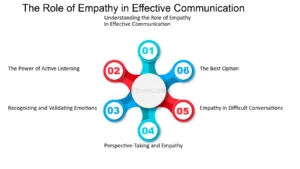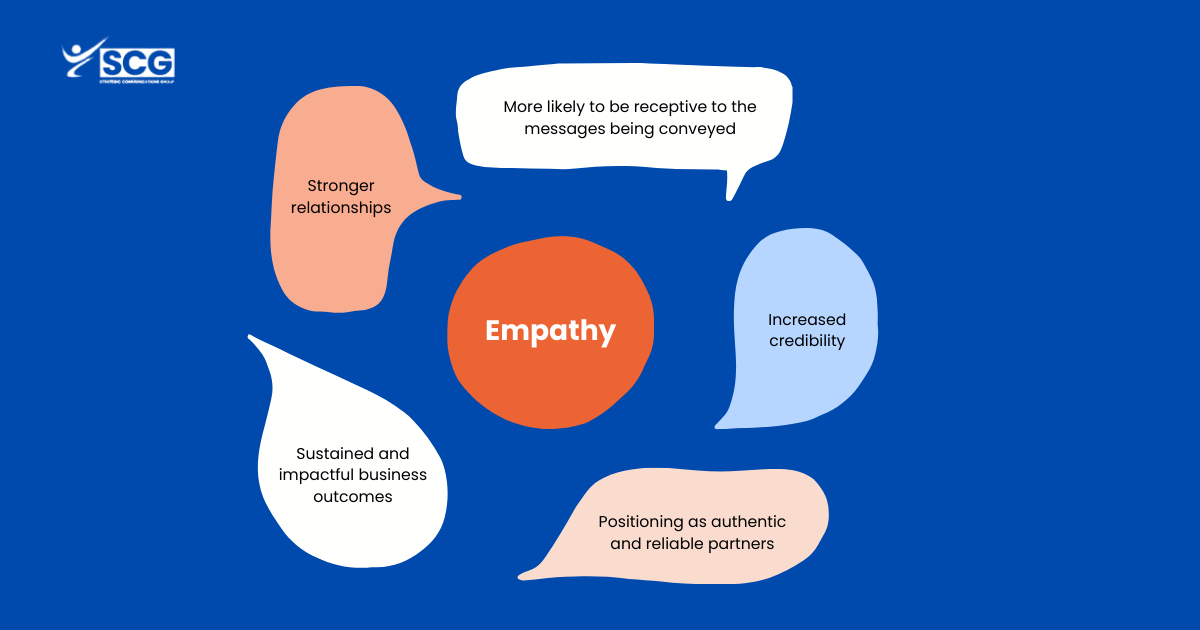Effective communication is essential in both personal and professional relationships, and empathy plays a crucial role in ensuring that communication is successful. Empathy involves understanding and sharing the feelings of others, which can significantly enhance the quality and effectiveness of interactions. This article explores the importance of empathy in communication, its impact on relationships, and practical ways to develop and apply empathetic skills.

Understanding Empathy
Empathy is the ability to put oneself in another person’s shoes and to feel what they are feeling. It goes beyond mere sympathy, which is feeling pity or sorrow for someone else. Empathy involves actively engaging with another person’s emotional experience, which can lead to more meaningful and productive communication. By acknowledging and validating others’ feelings, empathetic communicators can build stronger connections and foster mutual respect.
The Importance of Empathy in Communication
1. Building Trust
Empathy is fundamental to building trust in any relationship. When individuals feel understood and valued, they are more likely to open up and share their thoughts and concerns. This openness fosters a deeper level of trust, making it easier to collaborate and resolve conflicts effectively. In professional settings, trust is crucial for teamwork and leadership, as it encourages a supportive and collaborative environment.
2. Enhancing Understanding
Empathetic communication enhances understanding by allowing individuals to perceive situations from multiple perspectives. When people practice empathy, they are better equipped to interpret the emotions and motivations behind others’ words and actions. This deeper understanding can prevent misunderstandings and help address issues more effectively.
3. Improving Conflict Resolution
Conflicts are a natural part of interactions, but empathy can help in resolving disputes constructively. By empathizing with the other person’s viewpoint, individuals can approach conflicts with a mindset of problem-solving rather than defensiveness. This empathetic approach facilitates open dialogue and collaboration, leading to more amicable resolutions.
4. Promoting Emotional Well-being
Empathy contributes to the emotional well-being of both parties in a communication exchange. When individuals feel that their emotions are acknowledged and understood, they experience a sense of validation and support. This positive emotional experience can reduce stress and increase overall satisfaction in interactions.
Practical Ways to Develop and Apply Empathy
1. Active Listening
Active listening is a key component of empathetic communication. It involves fully focusing on the speaker, avoiding interruptions, and reflecting back what is heard to ensure understanding. By practicing active listening, individuals can demonstrate that they value and respect the other person’s perspective.
2. Ask Open-Ended Questions
Asking open-ended questions encourages individuals to share more about their experiences and feelings. This approach not only provides deeper insights into the other person’s perspective but also shows a genuine interest in their thoughts and emotions. Open-ended questions help create a space for meaningful conversation.
3. Practice Reflective Responses
Reflective responses involve paraphrasing or summarizing what the other person has said to confirm understanding. This technique helps ensure that the message has been accurately received and allows for clarification if needed. Reflective responses also convey empathy by showing that the communicator is engaged and attentive.
4. Be Present
Being present means fully engaging in the conversation without distractions. It involves maintaining eye contact, using positive body language, and showing attentiveness. By being present, individuals can create a supportive environment where empathy can flourish.
5. Develop Emotional Awareness
Developing emotional awareness involves recognizing and understanding one’s own emotions and how they influence communication. By being aware of their own emotional states, individuals can better manage their responses and relate to others more empathetically.
Conclusion
Empathy is a vital element of successful communication that enhances trust, understanding, and emotional well-being. By actively practicing empathy through active listening, asking open-ended questions, and being present, individuals can improve their communication skills and build stronger, more meaningful relationships. Developing and applying empathetic skills not only benefits personal interactions but also contributes to a more collaborative and supportive environment in professional settings.




